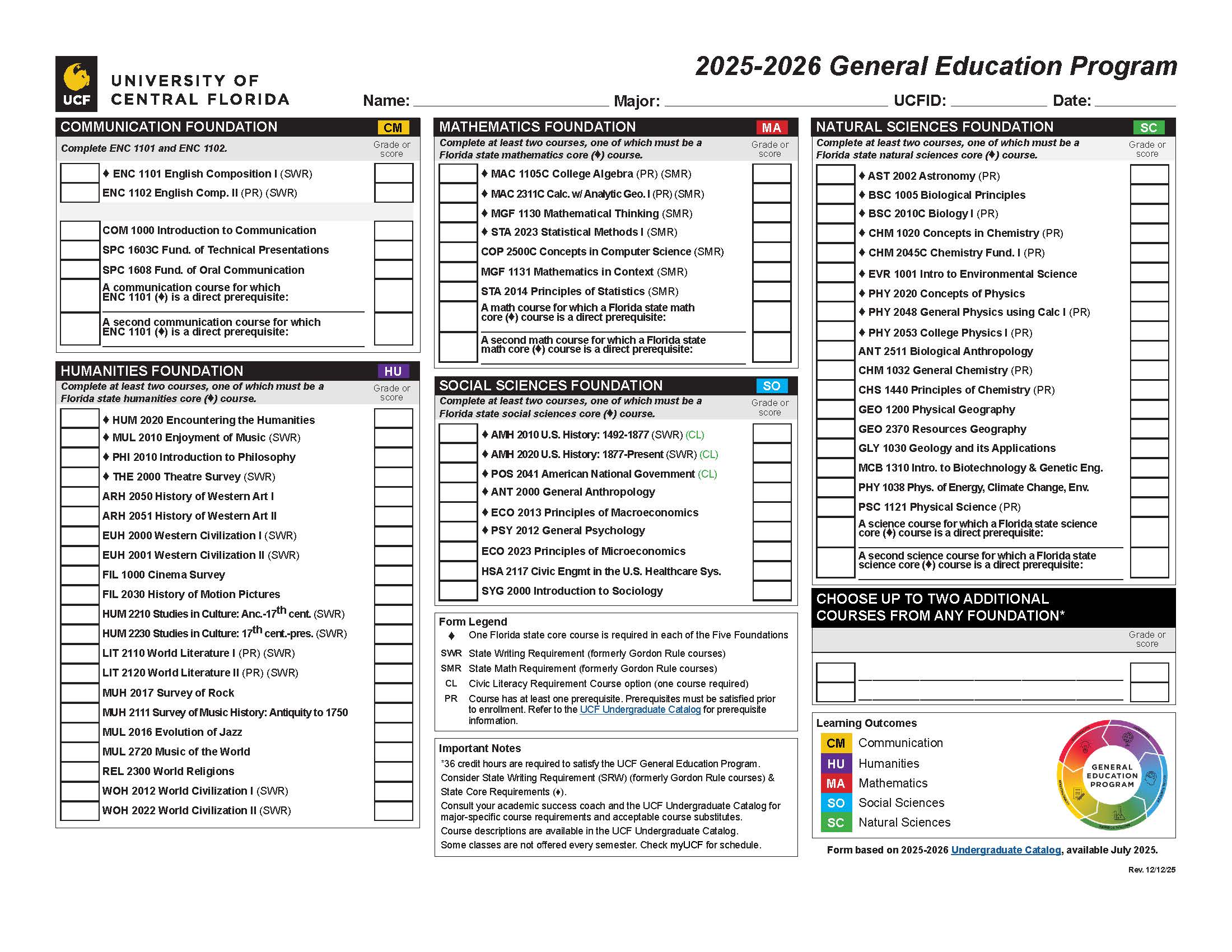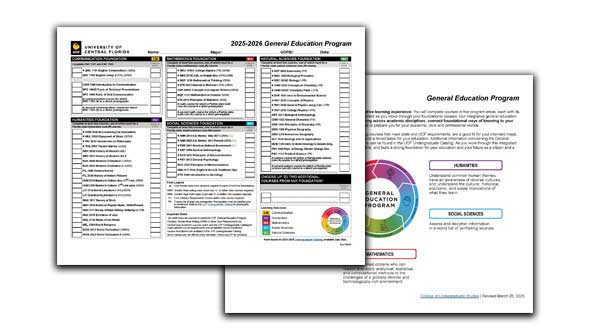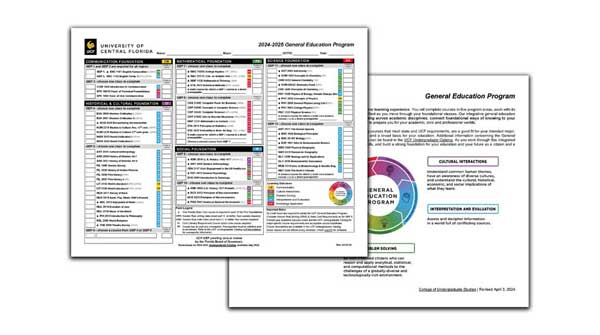UCF’s General Education Program (GEP) will spark your intellectual curiosity and creativity. You’ll study multiple disciplines, connect ideas across subjects, link what you’re learning to your major and use your knowledge to shape your future.

The semester you began taking classes at UCF determines your catalog year. You follow the GEP requirements in that year. For instance, if you began taking classes in fall 2022, your catalog year is 2022-23. Students that begin to take classes in summer or fall 2025 will complete the 2025-26 GEP requirements. To view the catalog that applies to you, visit the current UCF Undergraduate Catalog webpage or the catalog archive.
Which GEP Applies to You?

You’ll complete a minimum of 36 credit hours* by taking courses in five foundations. * There are math and science courses that are four credit hours. Credit Hours*
GEP Requirements
Communication Become successful writers, speakers and producers of digital materials in their academic, civic and professional worlds. Humanities Understand common human themes, have an awareness of diverse cultures and understand the cultural, historical, economic and social implications of what they learn. Mathematics Be well-informed citizens who can reason and apply analytical, statistical and computational methods to the challenges of a globally-diverse and technologically-rich environment. Social Sciences Access and decipher information in a world of conflicting sources. Natural Sciences Understand scientific methods and connect and apply them to challenges facing society.
GEP Foundations
![]()
![]()
![]()
![]()
![]()

(12 credit hours)
(6 credit hours)
(6 credit hours)
(6 credit hours)
(6 credit hours)
The GEP Work Sheet is your guide to fulfilling your requirements. It indicates the required courses and other options from which you can select. Be sure to review the GEP requirements for your catalog year. The undergraduate catalog is the official source for GEP requirements.
Use the GEP Work Sheet as your guide
Pro Tips
- As soon as you’re admitted to UCF, review your GEP requirements and map out the courses you’ll take each semester.
- Select courses that will help you fulfill graduation requirements, such as the State Writing and Math Requirements and Civic Literacy. (The GEP Work Sheet indicates the requirements a course fulfills.)
- Take classes that are prerequisites for courses in your major.
- Don’t be afraid to choose a class in a subject that interests you, even if you have no prior experience with the subject matter. Lead with curiosity!
- Meet with your academic success coach to select and register for courses that meet your academic, professional and personal goals.
GEP Myth Busters
The knowledge and experience you acquire will prepare you for the demands of the workforce of the future. As you fulfill GEP requirements, you’ll acquire knowledge and participate in experiences that will hone skills such as communication and problem-solving. GEP courses combined with classes in your major is a powerhouse that will prepare you for the opportunities that lie ahead, including graduate school and the workforce.
Introduction to Communications has changed my perspective on life and how I interact with people on a daily basis especially in my career. The professor was amazing and hilarious. I have never been so intrigued and focused in one course as much as I was in this at UCF. It taught me how to communicate effectively and what the basic manners and communication styles are. I learned so much and techniques I can use for the rest of my life. I took Intro to Philosophy as a joke/supposedly easy A, but I ended up gaining a lot from it. One of the biggest and most important things that I gained was the ability to looks at issues from different viewpoints. It was one of the first times in life where I was challenged to think outside the box and force myself to look at issues from multiple viewpoints instead of just going about things in a linear path as I normally would. This skill would go onto help me immensely in life both personally and professionally. General Psychology affected my perception of myself and others. I believe the class made me more sympathetic and gave me an overall awareness that everyone’s psychology is unique and at times influenced by factors beyond their control. I assume many of the ideas presented in this class went on to ignite my interest in film. I still enjoy learning about psychology, especially as it relates to creating interesting characters for narrative storytelling.
What students are saying




